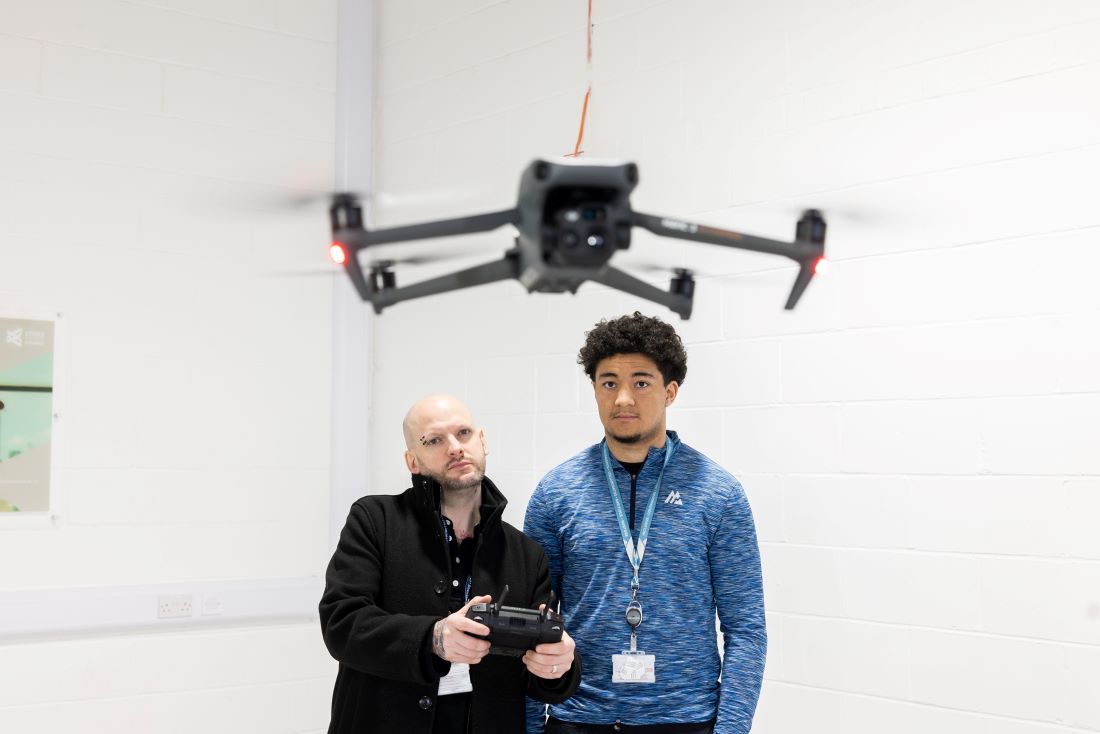Delivering for the labour market and sector needs

NCFE was born in 1848 from the belief that no learner should be left behind. Today, as an educational charity, we take up that cause with new energy, bringing together over 170 years of education experience and deep insight.
Ecosystem
We can’t discuss post-16 education without touching on what leads to it. The current school curriculum has a predominantly academic focus that prepares learners well for A levels and university. However, the lack of technical options can leave learners unprepared to make informed decisions about their post-16 progression routes.
A rebalancing of the school curriculum is needed, with more technical education options so that young people can make empowered decisions about their future from a place of knowledge. Allowing pupils to explore and experience different forms of education will give them a solid base to understand their own strengths, skills, passions, talents and make the right choices about which path to follow.
The introduction of T Levels as a work-focused alternative to A Levels, requires young learners to make a choice between an academic or technical route at just 16 years old. Currently, many must make this decision without having experienced both technical and vocational learning.
T Levels
We are proud to have been selected by the Government to spearhead the development of T Levels in a range of subject areas. Thanks to a collaborative effort between leading employers, sector specialists, colleges, and the Institute for Apprenticeships and Technical Education, these qualifications have the power to shape the future skills of the industries that they serve.
The work placement element is a particular differentiator for these qualifications and provides learners with a myriad of skills that cannot be taught or experienced in the classroom, such as workplace etiquette, time management, and an opportunity to start building a network of colleagues within their chosen sector.
We have learned from previous reforms that policies need to be given time to truly grow and evolve into a great success for post-16 education, and it is vital that T Levels are given this time to flourish.
Choice and parity of esteem
What is needed in the Level 3 landscape moving forward is a balance of provision that recognises academic aptitude and technical competence as different yet have comparable outcomes. Changes to provision to meet that comparability will need time to build credibility, understanding, trust and value.
If we’re going to change the thinking around the respective benefits of academic and technical education, we need to stop pitting them against each other; we should value each route equally for what they bring to the individual, to society and the economy. There is so much crossover in technical and academic learning and one can’t really exist without the other, so we need to recognise this and nurture, develop and celebrate both in equal measure.
We support the current review of qualifications at Level 3. However, we need to ensure that there is still choice available so that all learners can find the route that is right for them. High quality, world class academic qualifications and gold standard, world class technical qualifications must stand side by side. The needs of the learner, the economy, business, and the labour market must all be satisfied. Therefore, a mix of academic, technical, and vocational qualifications, including those that can be taken alongside A levels, and where appropriate for that level and sector, is the way forward.
A robust education system
The purpose of education is to help create a fairer, more inclusive society – education should be the great leveller. Over the last 20 months, our educators have shown their resilience, ingenuity, and passion. It’s time to work with them to build a truly robust system that can take whatever unforeseen shocks are thrown its way.
The change we shape is structural but the outcomes are personal – enabling learners to live meaningful and fulfilling lives. We want to equip all learners to make the best choices for them over a lifetime of learning.We work to further equality of opportunity, whatever the starting-point, whatever the desired destination.
There is ultimately nothing more important than investing in our young people who are our most important asset.
Julie Hyde – Director External and Regulatory Affairs – NCFE











Responses